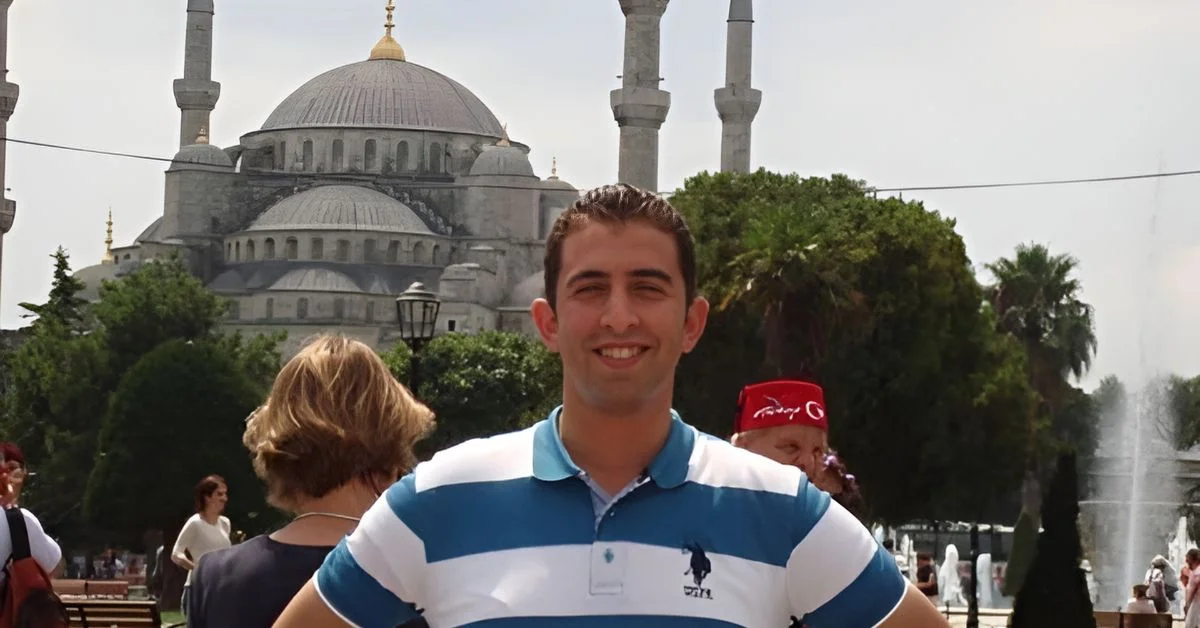Muʿādh Ṣāfī Yūsif al-Kasāsba: A Hero’s Sacrifice
Muʿādh Ṣāfī Yūsif al-Kasāsba, a Jordanian pilot, became a symbol of heroism and national pride after his tragic death at the hands of the Islamic State (ISIS) in early 2015. His story is not only a testament to his bravery but also highlights the broader context of the fight against terrorism, the impact on his family, and the response of the international community. This article delves into his life, the events leading to his capture, his legacy, and the global reaction to his sacrifice.
Early Life and Background
Childhood and Education
Muʿādh Ṣāfī Yūsif al-Kasāsba was born on May 29, 1988, in Karak, Jordan. Growing up in a family with strong military traditions, Muʿādh was inspired from a young age to serve his country. His father, Ṣāfī Yūsif al-Kasāsba, a retired military officer, played a significant role in shaping Muʿādh’s aspirations. He attended local schools in Karak, where he was known for his dedication and sense of duty.
Military Career
After completing his secondary education, Muʿādh pursued his dream by enrolling in the King Hussein Air College. His exemplary performance and commitment to excellence saw him rise quickly through the ranks. By the time he graduated, he had earned a reputation as a skilled and disciplined pilot, eventually becoming a first lieutenant in the Royal Jordanian Air Force.
The Fight Against ISIS
Jordan’s Role in the Coalition
Jordan, under King Abdullah II, has been a proactive member of the international coalition fighting against ISIS. The country provided logistical support, intelligence, and, crucially, military personnel to the coalition efforts. Muʿādh al-Kasāsba was part of this mission, flying sorties over ISIS-controlled territories as part of Operation Inherent Resolve.
The Fateful Mission
On December 24, 2014, Muʿādh was piloting an F-16 fighter jet as part of a mission targeting ISIS positions in northern Syria. Unfortunately, his aircraft was downed near Raqqa, and he was captured by ISIS militants. The exact circumstances of his capture remain unclear, with conflicting reports about whether his jet was shot down or crashed due to mechanical failure.
Also Read: Skyla Nove: A Journey of Resilience and Stardom
Captivity and International Response
ISIS Propaganda
ISIS quickly seized the opportunity to use Muʿādh’s capture for propaganda purposes. They released several images and videos of him in captivity, aiming to demoralize coalition forces and showcase their power. Muʿādh was subjected to brutal interrogation and was forced to appear in videos that were circulated widely on social media.
Negotiations and Appeals
The Jordanian government, along with Muʿādh’s family, made desperate appeals for his release. Negotiations were attempted, with offers to exchange prisoners. The international community also called for his humane treatment and release, emphasizing the violation of international laws by ISIS.
The Tragic Execution
The Horrific Video
On February 3, 2015, ISIS released a video showing the execution of Muʿādh al-Kasāsba. In a shocking and inhumane act, he was burned alive while confined in a cage. This video was met with global outrage and condemnation, highlighting the brutal and barbaric nature of ISIS.
Reaction in Jordan and Worldwide
The reaction in Jordan was one of profound sorrow and anger. King Abdullah II cut short a visit to the United States to return home, and the government vowed to avenge Muʿādh Ṣāfī Yūsif al-Kasāsba’s death. The public outpouring of grief was immense, with mass gatherings and vigils held in his honour. International leaders and organizations condemned the execution, reiterating their commitment to fighting ISIS and supporting Jordan.
The Aftermath
Jordan’s Retaliation
In response to Muʿādh’s execution, Jordan launched a series of retaliatory airstrikes against ISIS positions. These operations were part of a broader effort to dismantle ISIS’s infrastructure and weaken its capabilities. The Jordanian military dedicated these strikes to Muʿādh, symbolizing their resolve and honouring his sacrifice.
Strengthening National Unity
Muʿādh Ṣāfī Yūsif al-Kasāsba’s death served to strengthen national unity in Jordan. His bravery and tragic end brought the country together, transcending political and social divides. The al-Kasāsba family became a symbol of resilience, with Muʿādh’s father, Ṣāfī, becoming a prominent figure in advocating for the continued fight against terrorism.
Muʿādh al-Kasāsba’s Legacy
A National Hero
Muʿādh Ṣāfī Yūsif al-Kasāsba is remembered as a national hero in Jordan. His sacrifice is a testament to the courage and dedication of Jordanian military personnel. His story is taught in schools, and numerous public spaces and institutions have been named in his honour.
Inspiration for the Armed Forces
Muʿādh Ṣāfī Yūsif al-Kasāsba’s legacy continues to inspire members of the Jordanian Armed Forces. His commitment to duty and his ultimate sacrifice serve as a powerful reminder of the values of courage, honour, and patriotism. New recruits often cite his story as a motivating factor in their decision to serve.
Global Symbol Against Terrorism
On an international level, Muʿādh al-Kasāsba’s tragic death has become a symbol of the global fight against terrorism. His story highlights the brutality of extremist groups and the importance of international cooperation in combating such threats. His execution drew attention to the need for continued efforts to dismantle terrorist organizations and protect innocent lives.
Personal Reflections and Impact on Family
The Al-Kasāsba Family
The al-Kasāsba family has faced immense grief and loss following Muʿādh’s death. Despite this, they have shown remarkable strength and resilience. His father, Ṣāfī, has been vocal in media appearances, calling for justice and supporting efforts to combat terrorism. The family has become a source of inspiration for many, symbolizing the unyielding spirit of those affected by terrorism.
Broader Societal Impact
Muʿādh’s story has had a profound impact on Jordanian society. It has fostered a sense of solidarity and a collective resolve to fight against extremist ideologies. The public’s response to his death demonstrated a unified stance against terrorism and a commitment to national security.
Also Read: UTANMAZ TÜRKLERE: EXPLORING BOLDNESS IN TURKISH CULTURE
Conclusion
In summary, Muʿādh al-Kasāsba’s life and tragic death have left an indelible mark on Jordan and the world. His bravery, dedication to duty, and ultimate sacrifice exemplify the qualities of a true hero. While his death was a profound loss, it also served as a catalyst for unity and strength in the fight against terrorism. His legacy continues to inspire and remind us of the importance of courage, resilience, and unwavering commitment to justice.
FAQs
Who was Muʿādh Ṣāfī Yūsif al-Kasāsba?
He was a Jordanian fighter pilot who was captured and executed by ISIS in 2015, becoming a symbol of national heroism in Jordan.
How did Muʿādh al-Kasāsba’s capture occur?
Muʿādh was captured on December 24, 2014, when his F-16 fighter jet crashed near Raqqa, Syria, during a mission against ISIS.
How did the international community react to Muʿādh al-Kasāsba’s execution?
The execution was met with global outrage and condemnation, with many international leaders and organizations reiterating their commitment to fighting ISIS.
What impact did Muʿādh al-Kasāsba’s death have on Jordan?
His death strengthened national unity in Jordan and prompted a series of retaliatory airstrikes against ISIS, enhancing the country’s resolve to combat terrorism.
How is Muʿādh al-Kasāsba remembered today?
Muʿādh al-Kasāsba is remembered as a national hero in Jordan, with his story taught in schools and numerous public spaces named in his honour, inspiring both military personnel and civilians.







